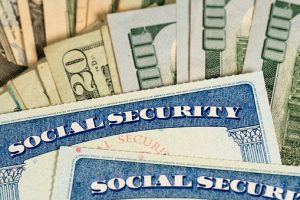Why Social Security Disability Applications Go Up In a Bad Economy
 Recently, an article on Reason.com criticized the Social Security Disability (SSD) program. The article argued there is a “lucrative” industry dedicated to helping people get benefits who do not deserve them. The article was full of myths and misconceptions that are common among those who want to attack the Social Security Disability system.
Recently, an article on Reason.com criticized the Social Security Disability (SSD) program. The article argued there is a “lucrative” industry dedicated to helping people get benefits who do not deserve them. The article was full of myths and misconceptions that are common among those who want to attack the Social Security Disability system.
As funding for Social Security Disability benefits is expected to run short in 2016, leading to a 20 percent benefits cut if politicians do not act, it is now more important than ever to push back at some of the common myths used to try to justify cutting benefits to people who need them the most.
Why Do Social Security Disability Applications Go Up When the Economy is Bad?
One of the most pervasive misconceptions used to attack to the Social Security Disability system is the idea that people use SSD as an alternative to unemployment or welfare benefits, even when they don’t really need it. Reason succinctly summarized this common argument, stating: “The statistics show large increases in applications for disability benefits when the economy is struggling and unemployment is rising but fewer applications when the situation is reversed. Given that people obviously don’t become more or less disabled depending on how the economy is performing, it means that people are using the program as a form of unemployment insurance.”
Arguments like this ignore one very important fact: most people who are disabled would like to work, but employers are less likely to hire them in positions they can do when the unemployment rate is high.
In a bad economy, everyone has difficulty finding jobs. The disabled, who have work limitations and who are thus restricted in the type of work they can do, are going to have an almost impossible time finding work. The fact the disability benefits rate goes down when the economy gets better actually supports the theory that people are only on disability when they truly do need it. As soon as jobs become available they can do with their condition, they apply for them and try to get out off of the benefits program.
People with disabilities struggle to find work in even a good economy. The unemployment rate in the United States is now at its lowest level in years, but the Department of Labor reports the jobless rate for Americans with disabilities is still at 10.2 in September (down just a tiny bit from 10.4 when data was released in August). The number of disabled individuals in the labor force all declined, with more people dropping out or no longer looking for work. When things are this difficult in a good economy, it is no surprise the disabled will struggle more when jobs are scarce.
Qualifying for disability benefits remains difficult and the definition of disabled is strict. There is no evidence to suggest people are taking advantage of the program and a misunderstanding of statistics should not be used as justification to reduce benefits or fail to support this important program.
